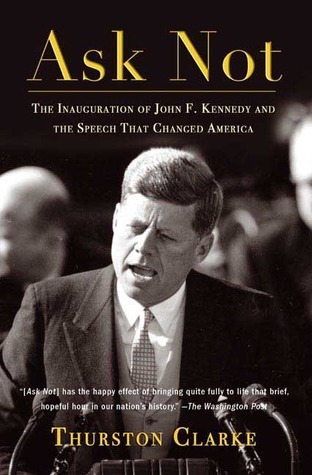
JFK and the Unspeakable: Why He Died & Why It Matters
Book Description
A bullet shattered a nation, but the truth behind JFK’s assassination remains shrouded in mystery and deception. In "JFK and the Unspeakable," James W. Douglass unravels a gripping tale of power, betrayal, and the dark forces at play in America’s political landscape. This eye-opening exploration reveals the untold story of a president who dared to challenge the status quo, confronting enemies both foreign and domestic. As layers of secrecy peel away, the questions persist: What cost did he pay for his vision of peace, and what are the implications for democracy today?
Quick Book Summary
"JFK and the Unspeakable" by James W. Douglass explores the hidden forces and complex motivations behind President John F. Kennedy’s 1963 assassination. With meticulous research, Douglass argues that Kennedy became a target for elements within the US government, intelligence agencies, and military, as a result of his growing efforts toward peace and diplomacy with Cold War adversaries. The book posits that Kennedy’s policies on nuclear disarmament and reconciliation with Cuba and the Soviet Union conflicted with powerful interests benefiting from the arms race and the prospect of war. Douglass contends that these interests orchestrated a conspiracy to remove Kennedy, keeping the truth hidden from the public. Through its investigation, the book not only examines why Kennedy was killed but also discusses the broader implications for American democracy and the enduring dangers of secrecy and unchecked power.
Summary of Key Ideas
Table of Contents
JFK’s Transformation Toward Peace
James W. Douglass opens by painting a portrait of John F. Kennedy not just as a Cold War president, but as a leader undergoing a profound transformation. Initially subscribing to hardline policies, Kennedy’s experiences—particularly the Cuban Missile Crisis—catalyzed his shift toward seeking peaceful solutions with adversaries like the Soviet Union and Cuba. Through back-channel communications and bold speeches advocating nuclear disarmament, Kennedy envisioned a world moving beyond perpetual conflict. This evolution put him at odds with entrenched interests profiting from militarism, sparking intense internal opposition.
The National Security State and Internal Opposition
Central to Douglass’s thesis is the concept of the "national security state," a powerful network of government agencies, military leaders, and industry insiders. Kennedy’s diplomatic efforts and attempts to withdraw from Vietnam directly threatened their influence and the profits generated by the ongoing arms race. Tensions soared within this apparatus—Kennedy’s pursuit of peace and reluctance to escalate military engagement were perceived as existential threats to the status quo. This internal opposition became increasingly covert and dangerous, laying the groundwork for a conspiracy against him.
The Conspiracy to Assassinate JFK
Douglass meticulously examines evidence and circumstances surrounding Kennedy’s assassination. He points to inconsistencies in official accounts, the orchestration of an elaborate cover-up, and the role of intelligence agencies and organized crime. The book asserts that Kennedy’s murder was not just the act of a lone gunman but the result of a coordinated plot by those determined to silence his vision. By analyzing suppressed documents, testimonies, and the Warren Commission’s limitations, Douglass crafts a compelling case for conspiracy.
The Role of Secrecy and the "Unspeakable"
A core theme is the "Unspeakable," a term Douglass borrows from Thomas Merton to describe evil so deep that it defies expression. The book suggests that the conspiracy’s success depended on widespread denial and the inability of society to articulate—or even contemplate—its reality. Secrecy, misinformation, and psychological barriers prevented open conversation about JFK’s true legacy and the forces that orchestrated his death, perpetuating a cycle of ignorance and complicity.
Implications for Democracy and Historical Memory
Douglass concludes by reflecting on the implications for American democracy, urging readers to confront uncomfortable truths about power and accountability. He warns that unchecked governmental secrecy and the manipulation of history threaten not only justice for JFK but also the integrity of democracy itself. The persistent unresolved questions around the assassination serve as a cautionary tale, highlighting the enduring need for transparency, vigilance, and an informed citizenry to guard against abuses by those in power.
Download This Summary
Get a free PDF of this summary instantly — no email required.





